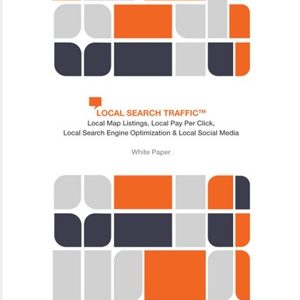
Be Honest: Are You Guilty of Creating One of the Worst SEO Reports Ever?
Have you ever looked back at an SEO report you created and thought, "What was I thinking?" A massive 10-page document teeming with irrelevant data that none of your clients will understand or even bother to read? We’ve all been there.
Filling Your Report with Pointless Data
You start with a slew of metrics from Google Analytics (GA): users, sessions, page views, bounce rates, time on site, traffic by channel, and more. Not stopping there, you add in stats from Google My Business (GMB) to showcase the number of listing views on Search and Maps. Then, to top it off, you plop in some data from Google Search Console featuring clicks and impressions.
"Look at all my hard work," you might think, feeling quite clever with all those numbers.
Well, I’m guilty of this too. However, while some of this data might be useful, it’s clear that a bloated report filled with metrics isn’t necessarily effective.
The Purpose of Your SEO Report
Before creating a report, consider what it’s supposed to achieve. The primary goals are to collect relevant data, analyze it to gauge what’s working or not in your local SEO strategies, and to demonstrate the value and ROI of your work to the client.
As local search marketers, it’s crucial to showcase the value we add in a language that clients understand, using metrics that matter to them.
The Importance of Goal Setting
Work with your client to establish a ‘goal charter,’ similar to a project charter in project management. This defines the goals, why they exist, and how to measure success.
The goal charter addresses three questions:
- What are your goals?
- Why do these goals exist?
- How will we know when we’ve met these goals?
The Role of SEO KPIs
With clearly defined goals, you need Key Performance Indicators (KPIs) to measure your success. KPIs are the metrics you use to gauge progress toward your goals. They must be specific, measurable, and relevant.
Common Data Sources for Local SEO Reporting
Although local rank tracking is useful, it’s worth considering if you want to report these rankings to clients. What truly excites clients is not your ranking, but the tangible results like increased revenue or more phone calls directly attributable to your SEO efforts.
Key data sources include:
- Google My Business (GMB) Insights: Provides data on customer actions such as website views, direction requests, calls, bookings, and messaging.
- Google Analytics (GA): Offers insights into user behavior on your website, especially if you have robust UTM tagging set up for your GMB profile.
5 Essential Local SEO KPIs
Here are five KPIs to track in your local SEO reporting:
1. Website Clicks
Google My Business Insights tracks ‘website clicks,’ showing how often users visit your site from your GMB profile.
How to Measure
- In GMB Insights: Use the ‘new profile performance’ option to get recent data on website visits.
- In Google Analytics: With UTM tags, you can see which parts of your GMB profile are driving website traffic.
2. Phone Calls
Phone calls initiated from your GMB profile are crucial for many local businesses.
How to Measure
- In GMB Insights: Check the number of ‘call’ button clicks.
- In Google Analytics: Track phone number clicks on your website using UTM tags and Google Tag Manager.
3. Revenue
Linking eCommerce revenue to your GMB profile helps attribute sales directly to your local SEO efforts.
How to Measure
- In Google Analytics: Use UTM tags combined with eCommerce tracking to measure revenue from GMB traffic.
4. Total Business Profile Interactions
Track important actions on your business profile, such as calls, messages, bookings, direction requests, and website clicks.
How to Measure
- In GMB Insights: Review the total number of actions.
5. Other Goals and Events
Include any other KPIs specific to your business, such as contact form submissions, newsletter signups, or appointment bookings.
How to Measure
- In Google Analytics: Navigate to GMB traffic in your campaign data and review the total number of conversions.
Conclusion
No matter the size of the business, measuring the impact of your local SEO efforts is key to demonstrating ROI. These five KPIs should provide a solid foundation for evaluating your performance. If these aren’t already in place, set them up immediately to benchmark your existing performance before implementing your strategies.
More resources:
- How to Completely Optimize Your Google My Business Listing
- Local Competitors Violating GMB Guidelines? Here’s What You Can Do
- The Complete Guide to GMB Attributes for Local SEO
Featured image: Shutterstock/one photo



